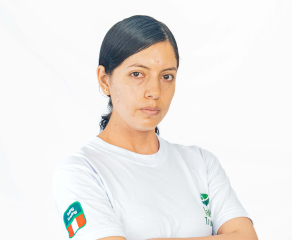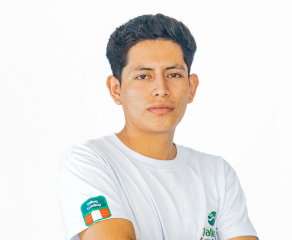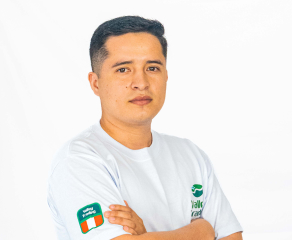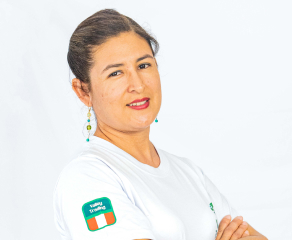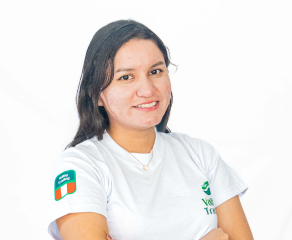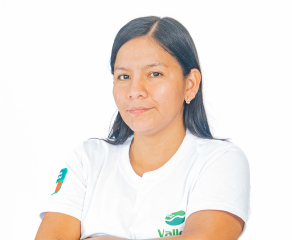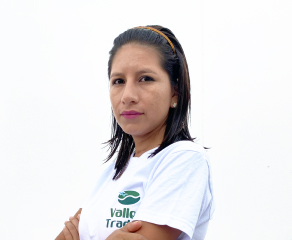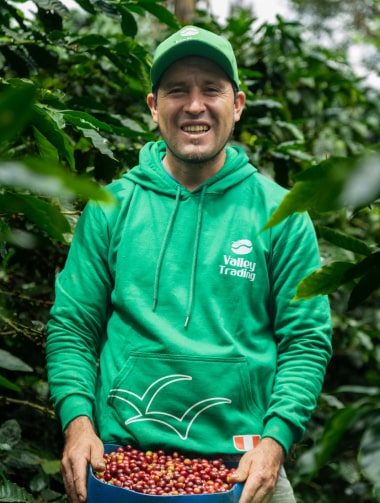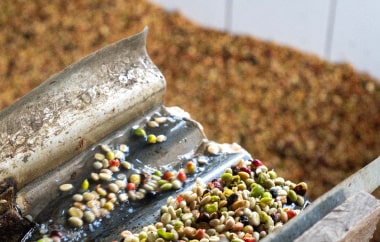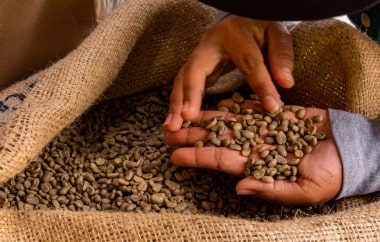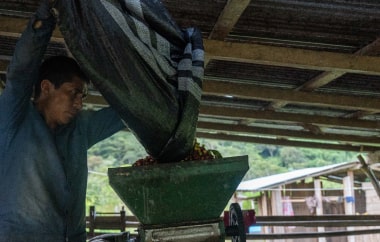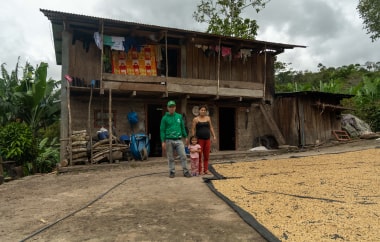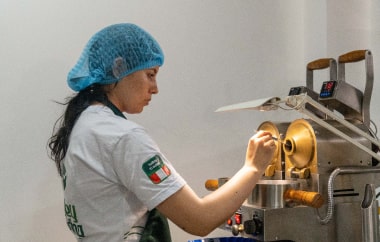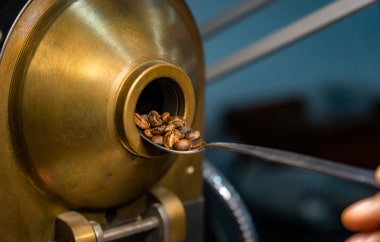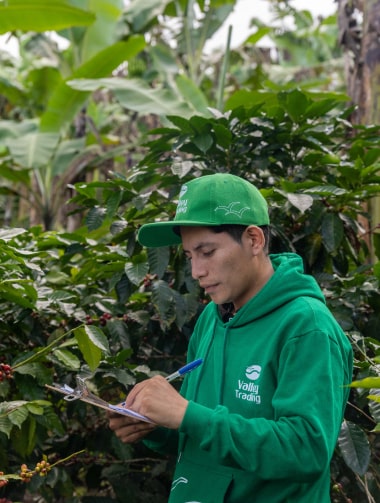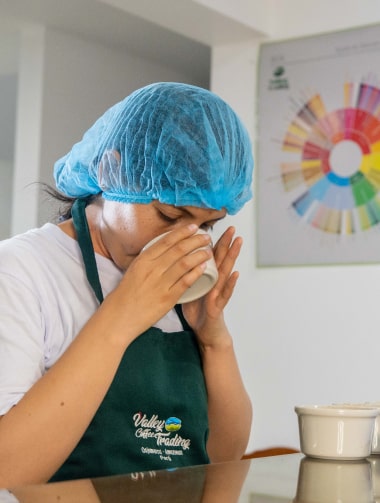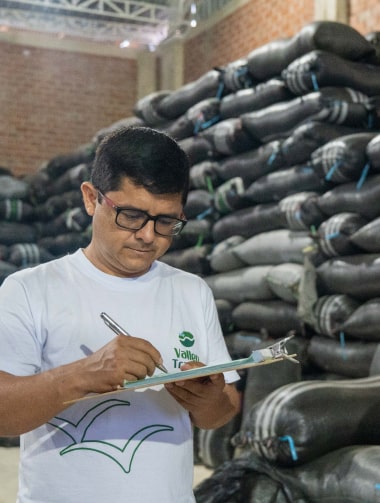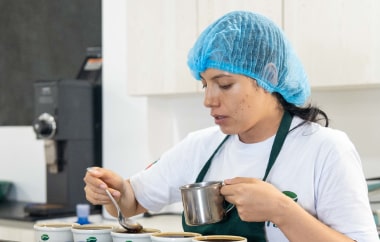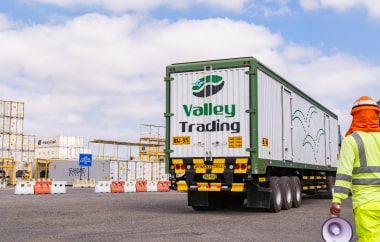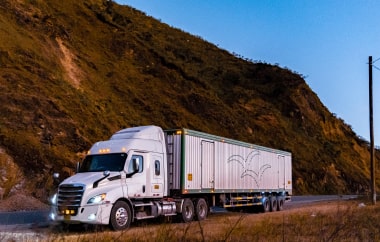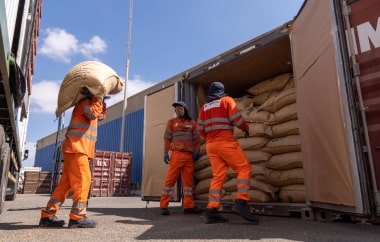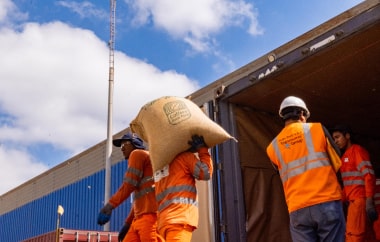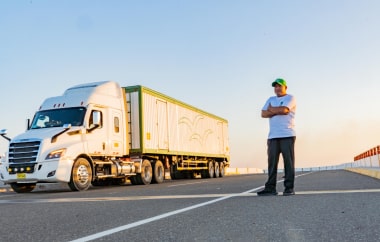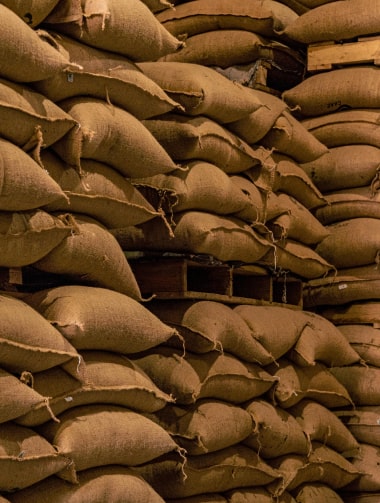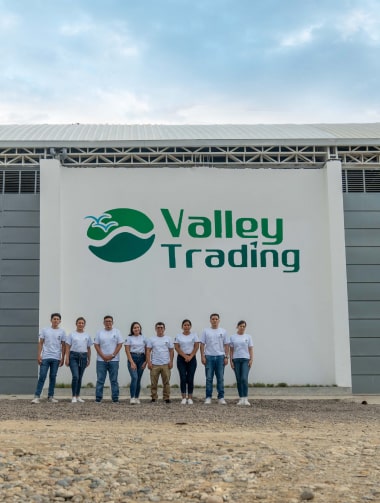Valley Trading
Our Certifications





Valley Trading
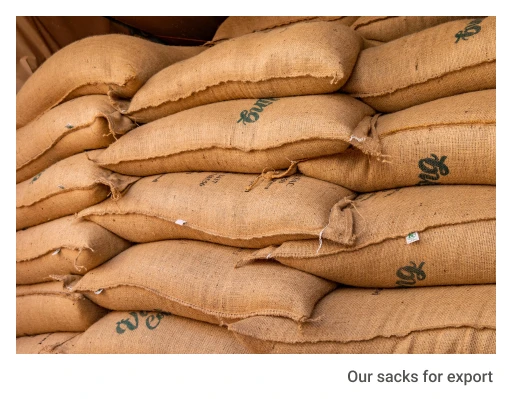
Achievements
Our
Export Proposal
Expansion of Origins:
Strengthening Producer Partnerships:
Product Diversification:
Sustainability Certifications:
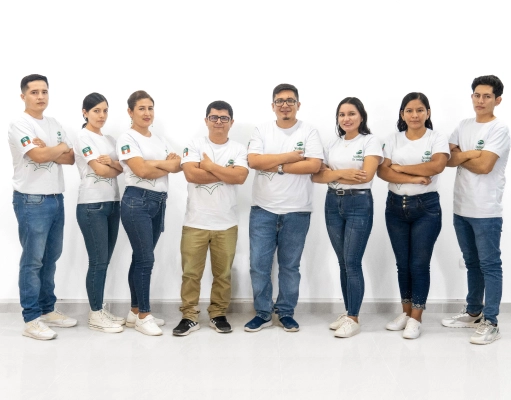
Quality Control and Traceability:
Market Expansion:
Continued Investment in Infrastructure:
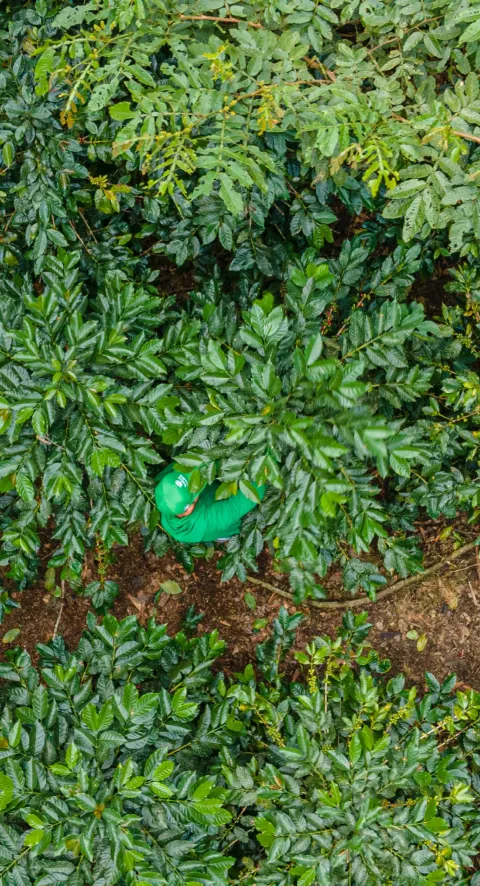

TECHNICAL DATA SHEET
Fruity
Floral
Citrus
Proposals by Origin
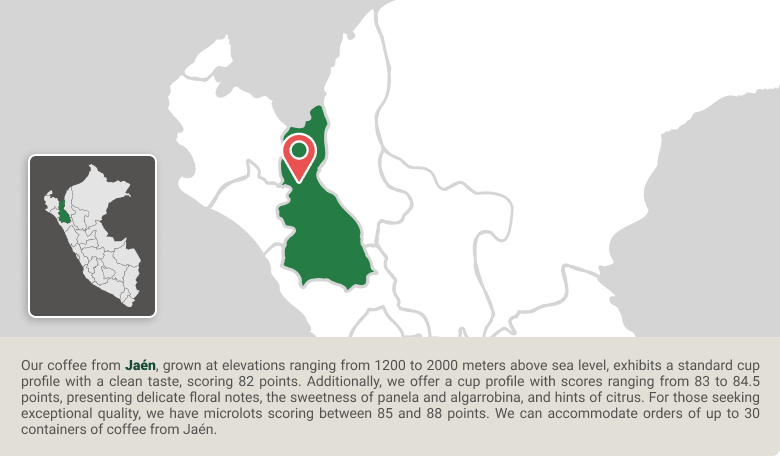
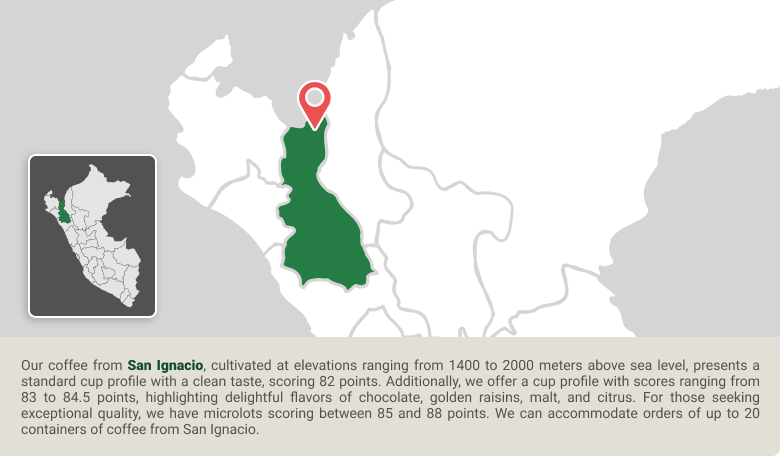
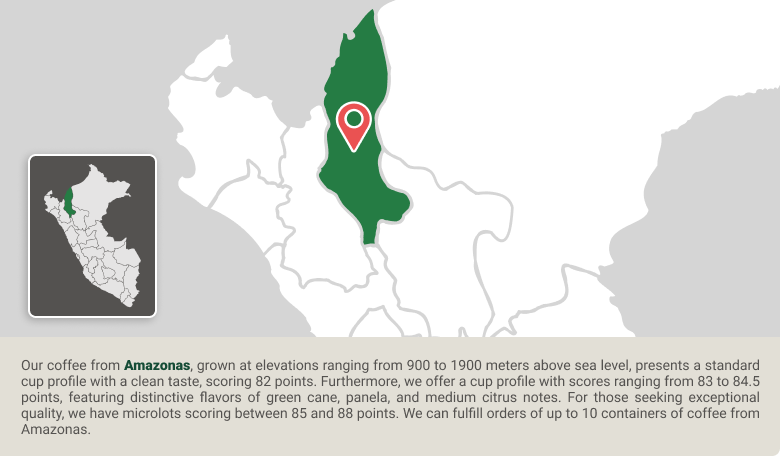
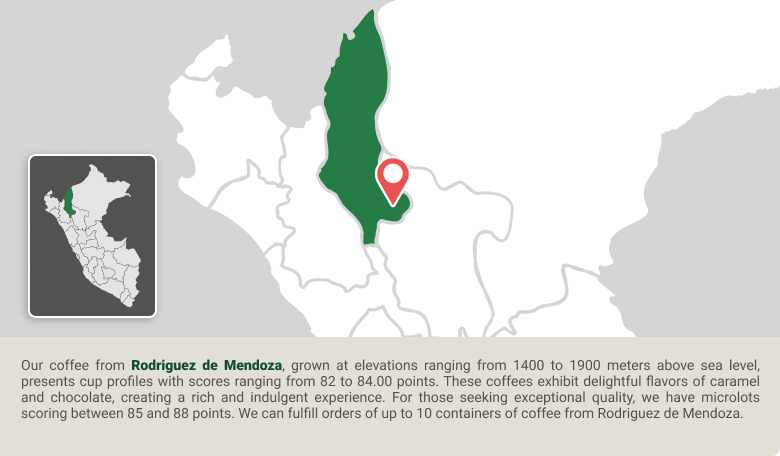
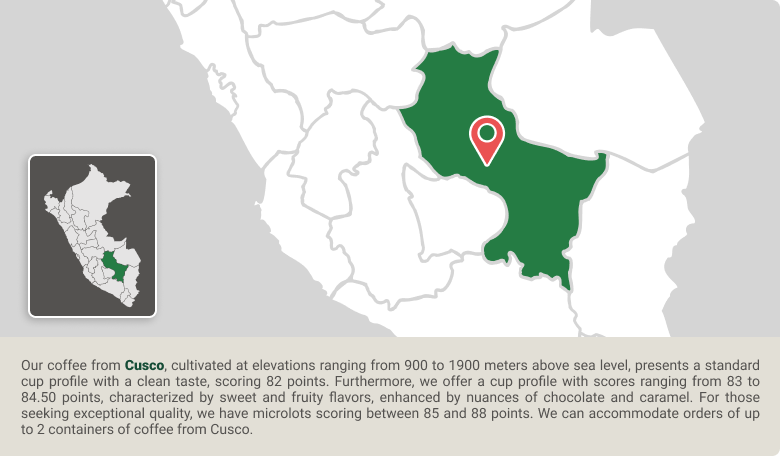
Jaén
The Jaén region in northern Peru boasts a mountainous topography and extensive forests that are vital for coffee production. It is also home to a wide variety of fauna and flora, including endangered species such as the Andean bear, mountain tapir, yellow-tailed woolly monkey, and Andean lapwing. The altitude ranges from 500 to 3000 meters above sea level, creating diverse microclimates and crops, including coffee. Jaén is blessed with important rivers like the Marañón, Tabaconas, and Huabal, which play a crucial role in agriculture. The region is home to significant cooperatives of high-quality coffee producers and has obtained the Protected Designation of Origin (PDO).
San Ignacio
San Ignacio is a region in Peru known for its rich pre-Columbian culture and natural beauty, where ancient inhabitants left behind rock paintings dating back over 5,000 years. It is also home to a beautiful lagoon surrounded by mountains and lush vegetation.
In the San Ignacio area, you can find the Chirinos Natural Reserve, an important sanctuary of biodiversity with a wide variety of flora and fauna. It is also renowned for the production of high-quality coffee, making it a sustainable location.
Coffee production in San Ignacio has become a significant economic activity for the local community. The region has obtained a Protected Designation of Origin (PDO), certifying the quality of its coffees and granting them recognition at both national and international levels.
Amazonas
The Amazonas region in Peru is renowned for its natural beauty and cultural history. In this region, you can find the breathtaking Gocta and Yumbilla waterfalls, as well as a wide variety of tropical birds, including the toucan.
Within the Chachapoyas National Reserve, you can encounter the endangered spectacled bear. You can also admire the legacy of the pre-Columbian Chachapoyas civilization through the fortresses of Kuelap and Revash.
Furthermore, Amazonas is well-known for its production of high-quality coffee, particularly the “caturra” variety. The coffee plantations are meticulously hand-cultivated and processed using traditional methods, resulting in a unique and delightful flavor profile.
San Martín
San Martin is a region blessed with lush nature and biodiversity, housing a wide variety of orchids, bromeliads, heliconias, and other tropical flowers. The region’s forests are home to animals such as the yellow-tailed woolly monkey, anteater, emerald boa, and jaguar. San Martin boasts rivers like the Huallaga, Mayo, and Cumbaza, offering opportunities for adventure tourism, including rafting and kayaking. Ecotourism is also popular in the region, with hiking trails and canoe rides along the rivers. San Martin’s culture is rich and diverse, with indigenous and mestizo influences evident in its music, dances, crafts, and gastronomy. The region’s crafts include wool weaving using alpaca and vicuña fibers, basketry, and wood carving. The gastronomy of San Martin is varied and delicious, featuring dishes such as juane (a traditional Amazonian dish made with rice, chicken, and spices wrapped in bijao leaves), tacacho con cecina (fried mashed green plantains with pork), and inchicapi (a spicy chicken and peanut soup). San Martin is renowned for producing a wide variety of coffee, including Bourbon, Caturra, Catimor, Catuai, Pache, and Typica.
Cusco
Cusco is the ancient capital of the Inca Empire, renowned for its Andean ruins and mysteries, as well as its handcrafted arts and textiles made in the cold mountains near the Inca citadel of Machu Picchu.
Cusco’s coffee is of superior quality due to the climatic and geographical conditions in which it is grown. Andean coffees are known for their smooth and fruity flavor profiles and are highly valued worldwide.
The culture of minga is a tradition of communal work in the Peruvian Andes, where members of the coffee-growing community come together to carry out tasks such as house construction, street cleaning, and selective harvesting. This practice has been passed down from generation to generation and is an integral part of Andean culture, fostering cooperation and solidarity among community members.
How we work
At Valley Trading, we are dedicated to providing the highest quality coffee and strive to ensure that it reaches you in the best possible conditions. We implement traceability measures and rigorous processes to ensure the quality of our coffee.
We conduct a careful evaluation of each producer on their farm to ensure that the coffee meets our high quality standards. We then carry out comprehensive product quality control assessments in our laboratory to ensure that it meets our criteria.
Once the coffee is selected, it is stored in our facilities with a capacity of up to 500 metric tons. Our facilities are equipped with appropriate security measures to meet the demands of the international market.
The coffee is shipped and monitored at all times, from its transportation to the processing plant to its transfer to the port. We comply with all requirements, including GPS and telephone monitoring, to ensure that the product arrives in optimal conditions.
We have a team of experts in commercial and logistics areas who are responsible for the international physical distribution of the product and the fulfillment of signed contracts. You can trust us to provide you with high-quality coffee that meets your expectations.
Work team
Valley Trading
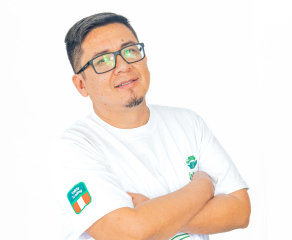
Ivan Vallejos
He is one of the company’s founders and has been working in the coffee industry since 2012, specializing in the commercial area. Ivan is responsible for direct customer interaction and proposal presentations.
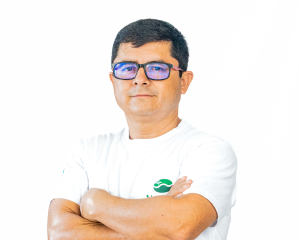
David Coronel
Also a co-founder of Valley Trading, has worked in coffee cooperatives and private companies since 2007. With his Q-Grader certification, David oversees quality control, shipment monitoring, and administrative management.
The Business
Proposal
If you are an importer or roaster, I propose a strategy based on four fundamental pillars: traceability, accountability, compliance, and transparency. These values are essential to ensure product quality and customer satisfaction.
Furthermore, if you are a potential partner looking to collaborate with producers, I propose focusing on three areas: environment, education, and health. This can serve as a bridge between producers and society to promote sustainable practices, improve education in rural areas, and enhance the health and well-being of workers and their families.
Together, we can build a profitable and responsible business that benefits all parties involved.

